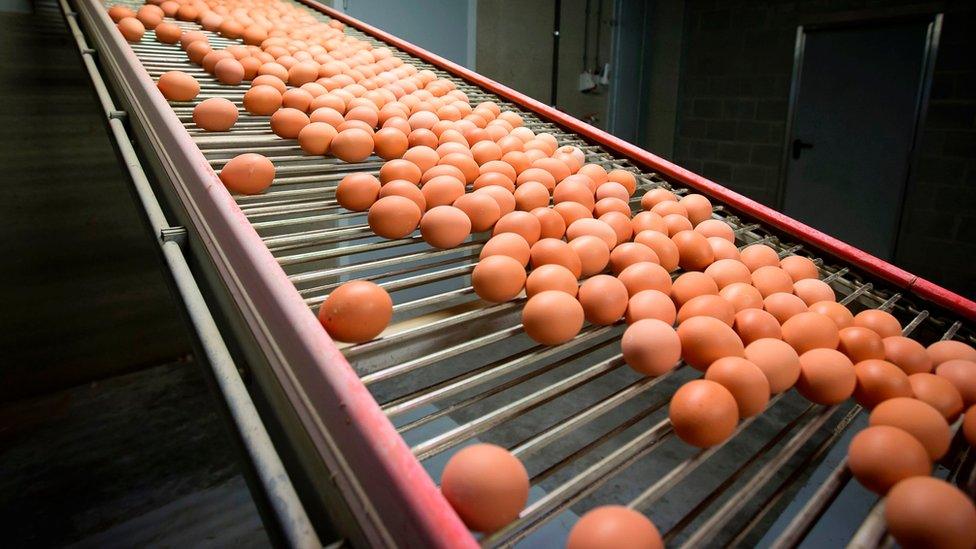Eggs containing fipronil found in 15 EU countries and Hong Kong
- Published
- comments
How safe are Dutch eggs to eat?
Fifteen EU countries as well as Hong Kong and Switzerland have received eggs contaminated with the insecticide fipronil, the European Commission says.
The commission will hold a meeting with ministers and regulators on 26 September.
Its food safety chief has called countries to stop "blaming and shaming" each other.
A row has erupted over how long Belgian and Dutch authorities have known about the contamination.
Eggs, coming mainly from the Netherlands, have been found to contain fipronil, a substance used to kill lice and ticks on animals that is banned by the EU for use in the food industry.
It is thought it was used to combat lice in some chicken farms, affecting the eggs of laying hens.
The insecticide can damage people's kidneys, liver and thyroid glands if eaten in large quantities. However, food standards agencies are playing down the risks for anyone who has already eaten the tainted eggs.
Which countries are affected?
Farms were shut down in the Netherlands, Belgium, Germany and France after authorities confirmed that fipronil had been used, European Commission spokesman Daniel Rosario said on Friday.
The EU countries that have received the eggs are the UK, Sweden, Austria, Ireland, Italy, Luxembourg, Poland, Romania, Slovenia, Slovakia and Denmark. Non-EU Switzerland is also affected.
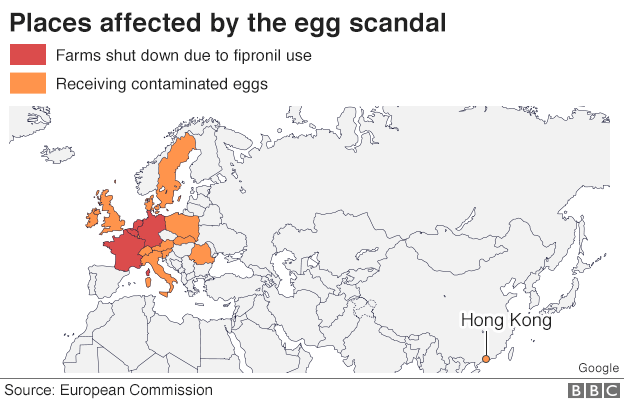
Friday's revelation that tainted eggs had also been sent to Hong Kong marks the first time the widening scandal has spread outside Europe.
What is being done about it?
The UK food watchdog also said about 700,000 eggs had been sent to the UK from potentially contaminated Dutch farms, up from an earlier estimate of 21,000.
The Food Standards Agency (FSA) said, external it was very unlikely that there was a risk to public health.
Processed foods containing eggs, including sandwiches and salads, have been recalled by leading supermarkets, including Sainsbury's, Morrisons, Waitrose and Asda.
Supermarkets in Belgium, the Netherlands and Germany have also withdrawn millions of eggs from sale.
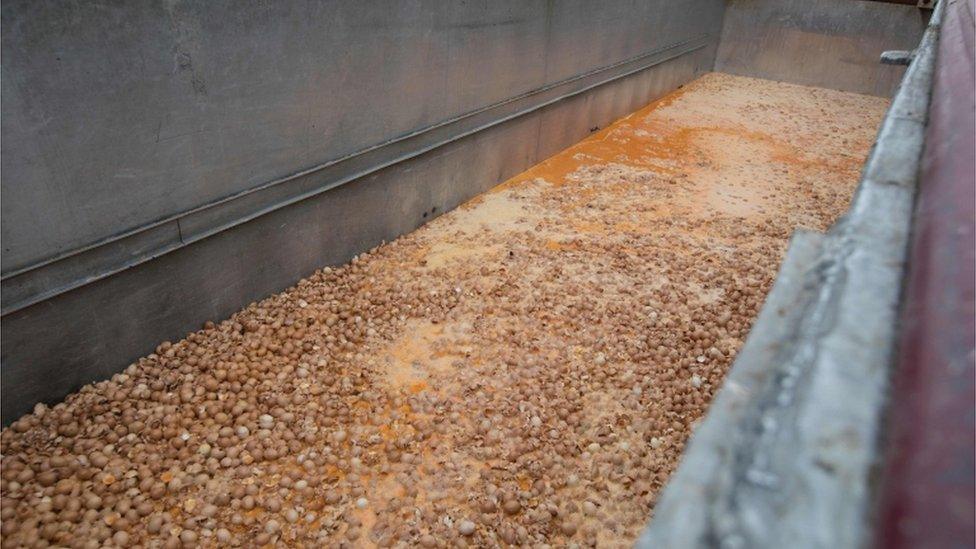
Eggs are being destroyed at chicken farms in countries including Belgium and the Netherlands
On Friday, France's Agriculture Minister Stéphane Travert said about 250,000 affected eggs had been sold in the country since April, adding that all products containing eggs from contaminated farms would be taken off the shelves.
In Hong Kong, the government's Centre for Food Safety says it identified two samples, external of imported Dutch eggs containing excessive levels of fipronil last week and asked shops to remove the products.
It has since tested other European egg imports and has not found any more "unsatisfactory samples", the South China Morning Post newspaper quoted a spokeswoman as saying.
What will the EU meeting do?
"Blaming and shaming will bring us nowhere and I want to stop this," European Commissioner for Health and Food Safety Vytenis Andriukaitis said on Friday.
"But first things first. Our common job and our priority now is to manage the situation, gather information, focus on the analysis and lessons to be learned in a view to improve our system and prevent criminal activity."
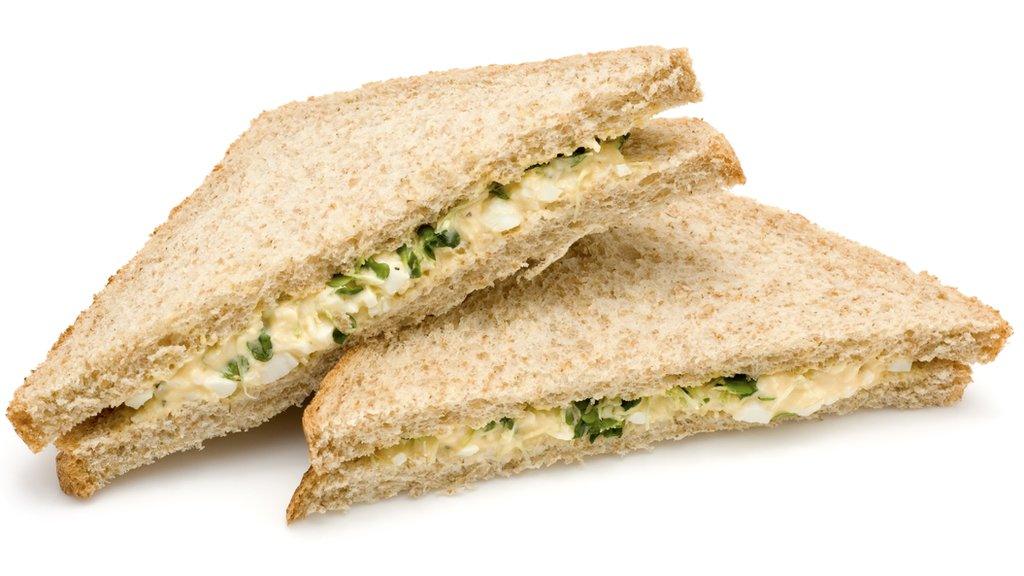
In the UK, the Dutch eggs were used in processed foods such as sandwich fillings
A commission spokesperson later added that the event scheduled for 26 September was not a crisis meeting. It is unclear whether the meeting will involve all 28 EU member states, or only affected countries.
What's happening with the criminal investigation?
On Thursday, Dutch police arrested two people in joint raids carried out with Belgian authorities.
A criminal investigation is under way, centring on two firms. Poultry Vision, a pest control firm from Belgium, is alleged to have sold the treatment to a Dutch poultry farm cleaning company, Chickfriend.
More than 100 poultry farms have been closed during the investigation, and 26 suspects identified and evidence seized from their companies.
Why have countries been arguing?
The Netherlands is Europe's biggest egg producer - and one of the largest exporters of eggs and egg products in the world.
The problem first surfaced earlier in August, when supermarket chain Aldi withdrew all its eggs from sale in Germany.
It has since emerged that Belgian officials knew about the contamination in June, but did not make the information public.
Meanwhile, Belgian Agriculture Minister Denis Ducarme has accused the Dutch authorities of knowing about the problem as far back as November 2016. The food watchdog in the Netherlands has denied this.

I'm in the UK - should I stop eating eggs?
By James Gallagher, health and science reporter, BBC News
Fipronil should not be allowed anywhere near food.
But the risk from eggs is thought to be low, because the number of contaminated eggs is also low.
While 700,000 eggs sounds like a lot, it is worth remembering we eat 34 million every single day in the UK.
It is why the Food Standards Agency says it is "very unlikely" there is any health risk.
Many of the affected eggs will have already passed through the food chain before anyone was aware of the scandal.
And the FSA has now pulled egg sandwiches and egg salads off the shelves that were made while contaminated eggs were still being imported.
It insisted there was "no need" for people to stop eating eggs.


- Published10 August 2017
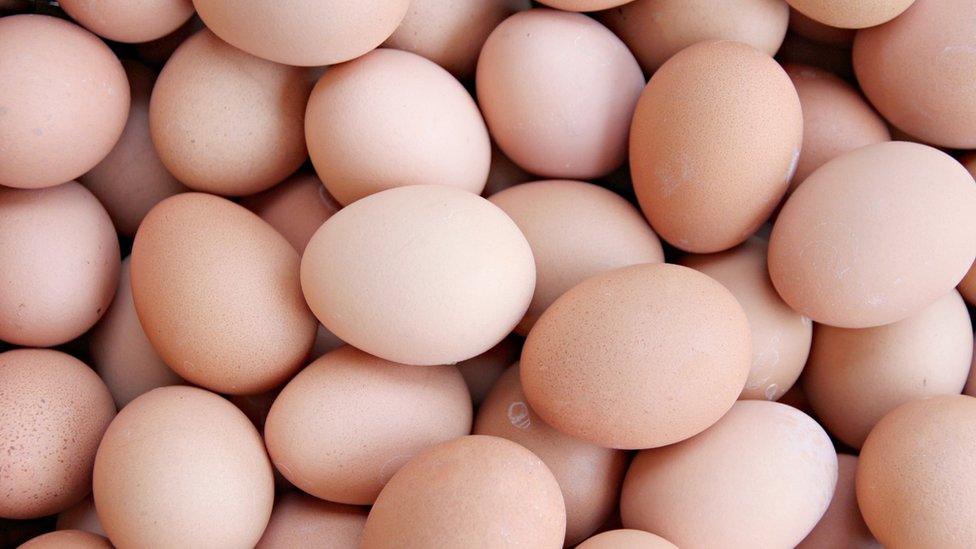
- Published6 August 2017
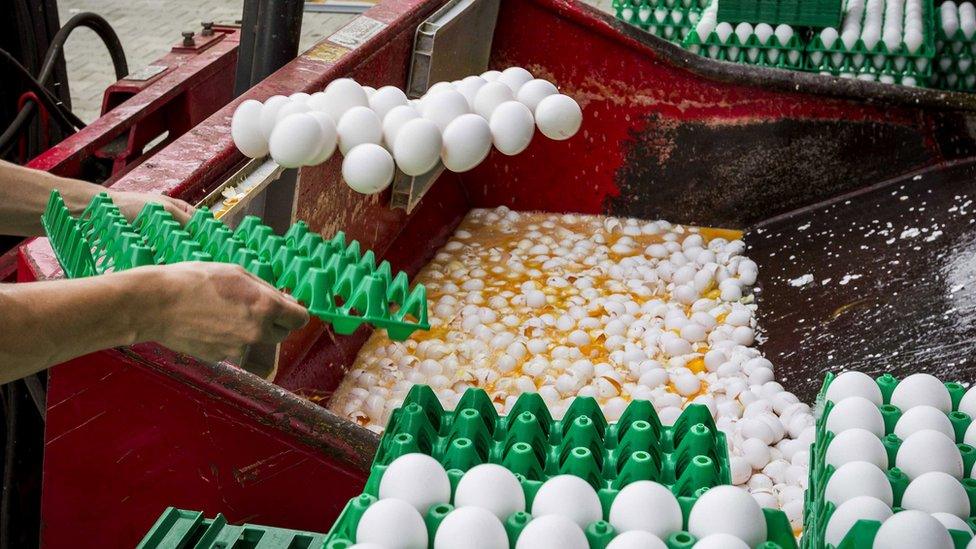
- Published4 August 2017
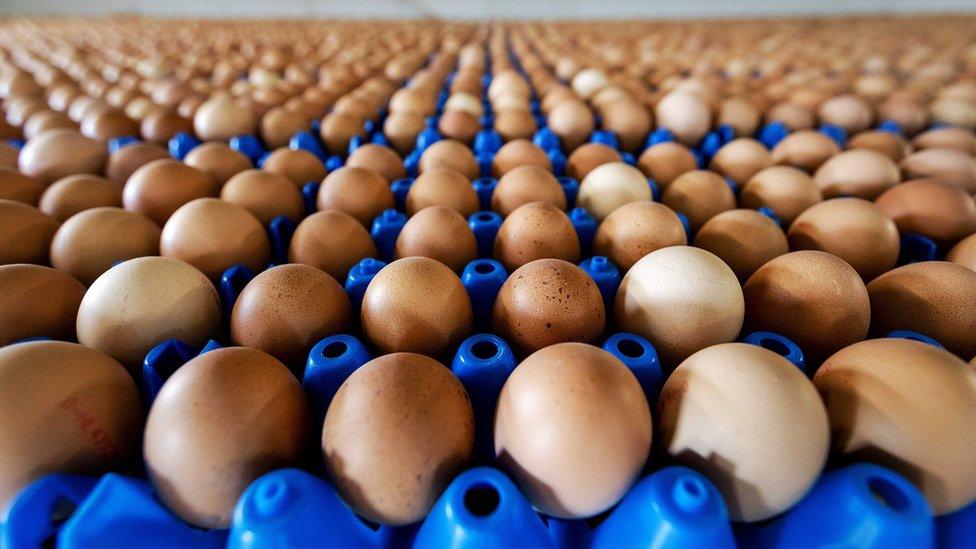
- Published11 August 2017
